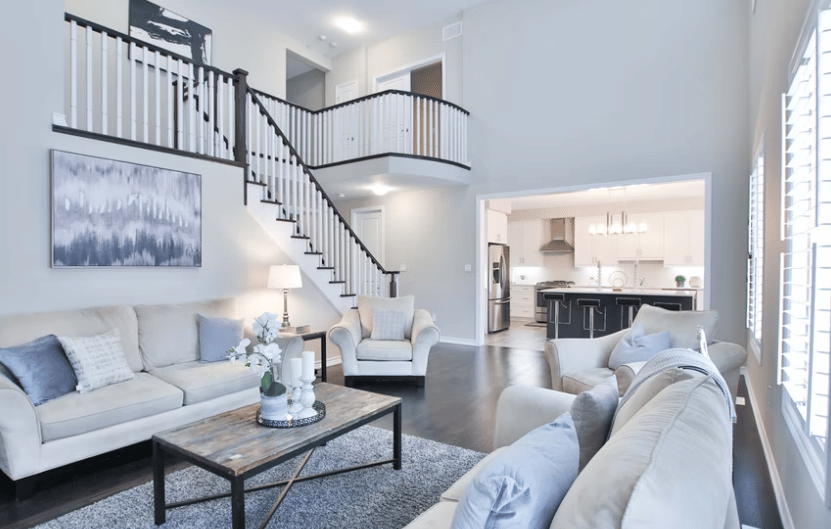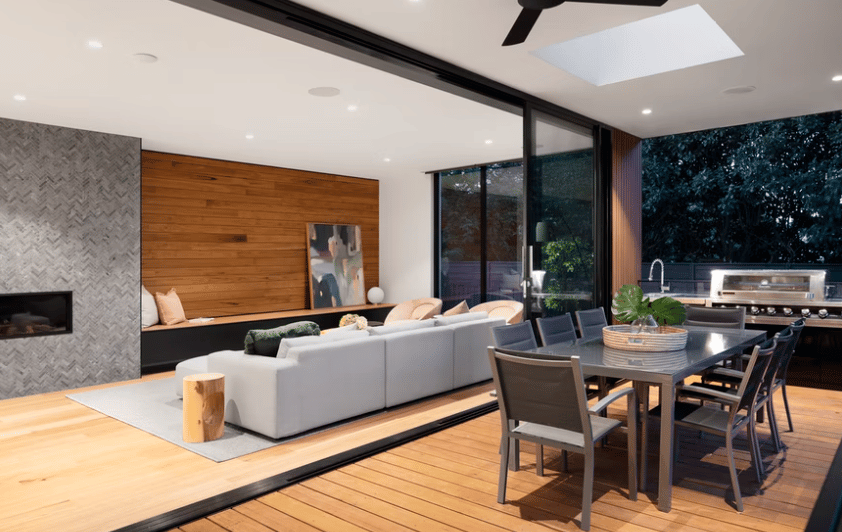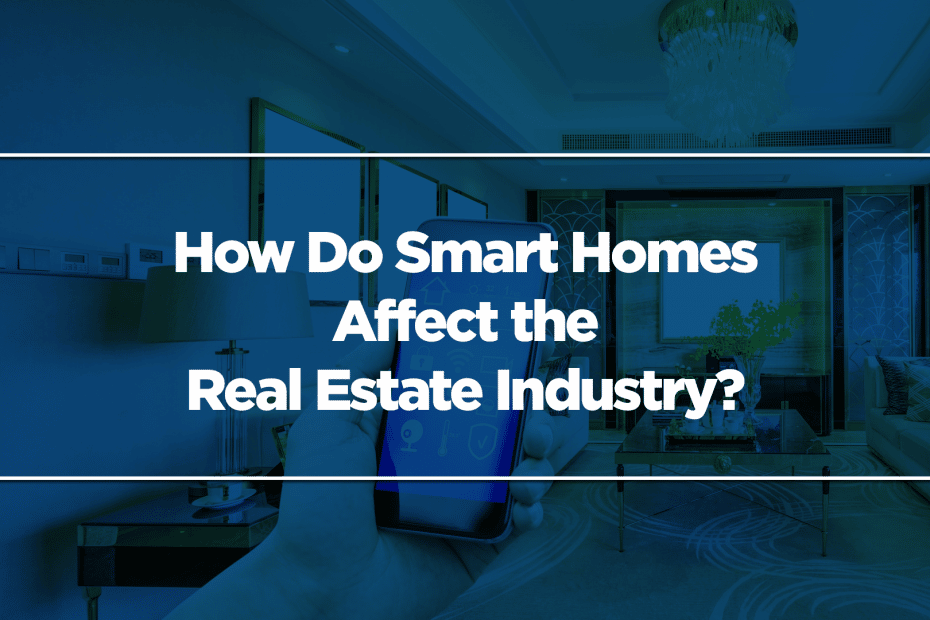Home is where someone lives permanently or semi-permanently. Typically, it is a house – complete with walls, beds, kitchen tables, etc. But those are conventional homes, which are slowly getting outdated. Smart homes are what’s in right now. It contains not only furniture but also smart devices. Also, many smart homes moved away from conventional appliances and adopted smart ones. These homes offer the owners a lifestyle filled with comfort and convenience.

People are looking for automation, ease, and comfort. Thus, the rise of smart homes has impacted the real estate industry. And it will continue to do so as smart homes are here to stay.
Let’s take a deeper dive into how it affects the real estate industry.
Smart Home Technology
Home automation is part of what made smart homes popular. The thermostat has already adjusted the temperature to the right one when you wake up. When you walk to your front door at night, the smart fixtures in your driveway automatically turn on, providing illumination. And gardening has become easier, thanks to smart sprinkler systems.
Smart home automation takes it up a level. It includes programming and remote monitoring. Devices also communicate with each other and talk together. For example, a smart leak sensor turns off the water when it detects a leak. It will also alert you through your smartphone.
Some devices don’t just send you alerts on your phone. You can monitor them through your phones or tablets. Security cameras allow you to view what it sees in real-time. And you can control smart lights, locks, pet feeders, and other gadgets while you are out of town using mobile apps.
Obviously, these devices are made to make people’s lives easier. But how interested are people in these, really?
Lifestyle’s Relation to Real Estate
No one can deny that where you live affects your way of life. So, to no one’s surprise, real estate and lifestyle are connected. And now, technology is making a big impact on people’s lifestyles. Put two and two together, and you’ll know that technology also affects real estate.
The housing sector has evolved. Before, people decided based only on the house itself and its location. Now, they also look at how technologically advanced it is.
The International Data Corporation (IDC) reports that the global market for smart homes grew 11.7% last year. Also, it’s predicted to have a double-digit growth through 2026.
The current state of Canada says that is possible. According to estimates, half of its population will be 55 and older in just one generation from now. For sure, they would be looking for assisted living environments or houses with aging in place. That said, the chances of them investing in smart homes are high.
As mentioned above, smart homes have many benefits, one of which is comfort. But aside from that, smart homes also have monetary benefits. Smart thermostats and other devices help homeowners reduce energy consumption.

These factors affect real estate. In fact, real estate firms closed more deals and generated more revenues, thanks to the inclusion of smart home devices.
Smart Homes are More Attractive to Potential Buyers than Dumb Homes
Intelligence is sexy. It seems that is not exclusive to humans but also applies to houses. People like smart homes more than conventional ones.
Before, people believed smart homes were only for a few people. They were only for the rich, famous, or tech geeks. That’s no longer the case. Today, consumers across generations or communities aim to live in a smart home.
A National Association of Realtors report pointed out that 43% of home buyers are Millennials. And we all know how much this generation is drawn to technology. Therefore, having at least three smart home devices in the house increases their likelihood of buying.
According to the same report, single women also invest in real estate. Think of what they need and one. One of those is to feel as safe and secure in their homes as possible. So, a house with a smart security system is attractive to them.
The gist is that homes with high-tech features stand out more than houses with just conventional appliances.
Smart Homes Are Easier to Resell
In a way, smart home devices are like basements. Both make it easier to resell a house.
Investors consider the resale value of a property before committing to a decision. Home automation systems and smart home devices increase that as they increase curb appeal. People consider the location, neighborhood, market, and age and condition of the home to determine a property’s market value. Recently, technology joined those factors.
When comparing smart homes with similar but low-tech houses, appraisers make what they call “adjustments.” Smart homes always get higher prices and hence, are easier to resell.
Faster to Sell
Smart homes don’t sell as fast as pancakes, but at least they sell faster than tech-deficient houses. Multiple factors affect how likely it is for a house to be sold. That includes the location of the house, its current condition, and the price. Also, its technological features affect how attractive it is to buyers. It is tested and proven that ready-to-move-in smart homes are more popular than properties where buyers need to install devices after the purchase.
Thus, the smart home will always get sold first when looking at houses with a similar price per square foot.

Smart Homes Are The New Norm
Smart homes are becoming more and more common. It’s easy to see why. These devices that offer comfort, convenience, and security make the home more inviting. Thus, potential buyers are attracted to them.
Smart home technology continues to evolve. And it’s safe to assume that smart homes will become even more popular in the future.
Real-estate firms benefit from smart homes because they allow the firms to close more deals. Aside from that, smart homes streamline how they work. Take self-guided tours, for example. Agents can show potential buyers the property without being present at the tour.
To summarize, smart homes are the new norm.
